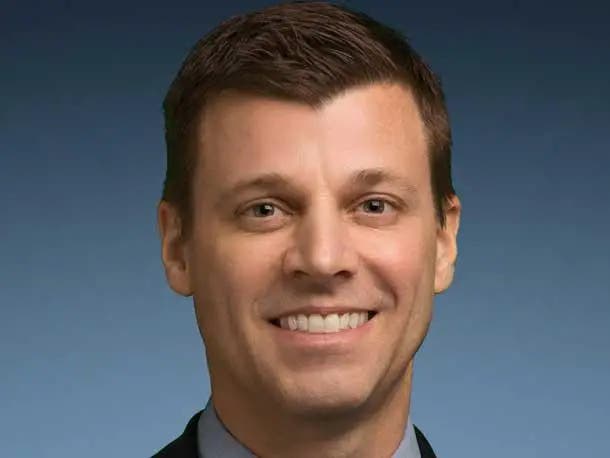Interim Intel Co-CEO: ‘The Core Strategy Remains Intact’
by nlqip

David Zinsner, one of Intel’s interim co-CEOs, says that while the chipmaker still wants to be a ‘world-class foundry,’ its board of directors wants company leadership to ‘also put emphasis on execution around the product side of the business.’
One of Intel’s interim co-CEOs said on Wednesday that the chipmaker’s “core strategy remains intact,” offering clarification on remarks by company leadership and its board of directors two days earlier when it announced the sudden exit of CEO Pat Gelsinger.
“The board was pretty clear that the core strategy remains intact,” said David Zinsner, Intel’s two-year CFO who now leads Intel temporarily with Michelle Johnston Holthaus, at the UBS Global Technology Conference.
[Related: Intel CEO Pat Gelsinger Retires Amid Financial Struggles, Comeback Plan]
When Intel announced on Monday that Gelsinger had retired the day before, the company released statements from Zinsner, Holthaus and Frank Yeary, the executive chair of Intel’s board, that put an extra emphasis on the Intel Products group while still mentioning the company’s progress in building a contract chip manufacturing business.
Intel Products consists of the company’s main chip design businesses: the Client Computing Group, the Data Center and AI Group and the Network and Edge Group.
At the USB Global Technology Conference, a financial analyst asked Zinsner how Gelsinger’s abrupt departure impacts the company’s strategy, which includes courting external chip design customers for its Intel Foundry business in addition to releasing its own chip designs such as the Xeon and Core processors through Intel Products.
“We still want to be a world-class foundry. We want to be the Western provider of leading-edge silicon to customers. That remains our goal,” Zinsner said at the event.
“But we also understand that it’s important for the No. 1 customer of Foundry to be successful in order for Foundry to be successful, and so the board wants to also put emphasis on execution around the product side of the business to make sure that the foundry business remains successful,” he added.
Zinsner’s mention of Intel Foundry’s No. 1 customer is in reference to the fact that Intel Products now acts as a customer to the contract chip manufacturer after the company separated the two groups’ operations and finances at the beginning of the year.
While Intel’s strategy remains the same, Zinsner said, the board has also pressed company leadership to push for more incremental returns on the massive investments the semiconductor giant has put into its manufacturing operations.
“I’d say the one thing that has definitely come out of the way the board’s thinking about this is they do recognize and have pushed us that, ‘Hey, we made a lot of investment from a capital perspective in Foundry, and we need to start seeing some incremental [return on invested capital] on those investments,’ and so, and that’s what we’re committed to do. That’s going to be one of my major focuses,” he said.
Zinsner added that the board chose Holthaus to lead the Intel Products group to push for better performance and execution across all its chip design teams.
“One thing that we have noticed is there are things that transcend all the business units on the product side that probably were getting sub-optimized, and I think having a leader over all of it allows us to be a little bit more functional about how we drive products, have excellence across all those functions, perform better, execute better and be cohesive across the business units in terms of how they go to market,” he said.
Zinsner praised Holthaus as someone who is “very capable” for the role.
“She knows all the customers really well. They all love her. She’s been in that business unit or sales roles for decades, so she understands the business quite well. She was the perfect person, not only to take on the product CEO job, but also to slot in this co-CEO role,” he said.
As the other interim co-CEO, Zinsner said he can address areas of leadership, particularly when it comes to finance, investors and “some of the more operational activities.”
Zinsner provided the clarification on Intel’s direction after some channel partners said the sudden exit of Gelsinger left them uncertain about the company’s strategy.
“I don’t think they’re going to completely implode or anything, but I think they are using Pat as a scapegoat for a company-wide strategy that’s not going as fast as Wall Street would like it to,” said Randy Copeland, president and CEO of Richmond, Va.-based Velocity Micro.
While Intel’s stock price initially rose by as much 5 percent in response to the news of Gelsinger’s retirement, it has declined by 13 percent in the two days since then.
Source link
lol
David Zinsner, one of Intel’s interim co-CEOs, says that while the chipmaker still wants to be a ‘world-class foundry,’ its board of directors wants company leadership to ‘also put emphasis on execution around the product side of the business.’ One of Intel’s interim co-CEOs said on Wednesday that the chipmaker’s “core strategy remains intact,” offering…
Recent Posts
- Google Cloud Hires Tech Superstar Francis DeSouza As New COO
- AWS Invests $11B In Georgia To ‘Support The Future Of AI’ Via Data Centers
- Google’s Willow Quantum Chip and Its Potential Threat to…
- Citrix Parent Cloud Software Group Confirms Layoffs
- Nvidia Seeks To Turbocharge AI PC Development With GeForce RTX 50 GPUs
